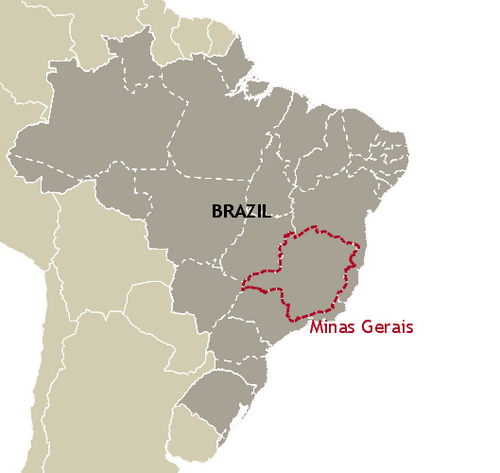The state's iron ore, steel, cement and agricultural sectors could be the bedrock of a hydrogen industry, writes Pamela Machado
Most project developers targeting large-scale clean hydrogen production in Brazil have focused on the northeast of the country, which offers vast land and renewable energy potential and is well located for exports. But firms are increasingly looking southeast, including to the state of Minas Gerais, where domestic industry could provide ample offtake opportunities.
Minas Gerais is a hub for mining, agriculture and other industries, and is Brazil's largest producer of coffee, iron ore, steel and cement. It is home to steelmakers ArcelorMittal and Gerdau, mining firm Vale and cement producer Holcim, among others. The area's vast agricultural sector has already attracted fertiliser producers seeking opportunities for green products, such as Switzerland-headquartered Atlas Agro. Decarbonisation of Minas Gerais' heavy industry could well be the next frontier for hydrogen project developers.
State investment promotion agency Invest Minas says interest in projects looking to decarbonise steel operations is growing. Invest Minas helps investors and developers navigate financial and regulatory challenges, and also works with the state government to shape policy. Developers are looking at decarbonising steel all the way through to Scope 3 emissions — covering indirect upstream and downstream emissions — the agency's energy transition specialist, Miller Gazolla, says.
And Brazil's cement output is poised to increase in the next decade, meaning producers in this industry should shift towards renewable hydrogen use to enable Brazil to meet its 2035 climate plan, think-tank Observatorio do Clima says.
Among the developers drawn to Minas Gerais by these opportunities is Portugal's H2 Brazil. "Minas Gerais was strategically chosen for its large industrial cluster, home to mining, steel, cement, agribusiness and dairy industries," the firm's chief commercial officer, Nathalia Ervedosa, tells Argus. These are "all high-energy consumers needing clean energy solutions", Ervedosa says.
H2 Brazil is planning a 600MW renewable hydrogen project targeting local offtake in Minas Gerais' Uberaba city. Exports may come eventually but the focus is on domestic opportunities because local industry "will absorb almost all production", Everdosa says. The project is to start in 2027 with a capacity of 20MW, rising to 600MW by 2029. H2 Brazil will deploy alkaline electrolysers and develop an experimental unit using solid oxide electrolysers to assess efficiency.
Good growing conditions
Minas Gerais already has over 11GW of installed solar power and is Brazil's main source of hydropower. Renewable energy can be generated for 150-180 reals/MWh ($26-31/MWh), Invest Minas says. Production of renewable hydrogen in the state could be possible at less than €2.40/kg ($2.5/kg), H2 Brazil says. But even with low power prices, achieving such low hydrogen production costs would probably require a sharp drop in electrolyser prices alongside high efficiency and utilisation rates.
In any event, government support could help make hydrogen projects viable. "The region offers robust infrastructure to accommodate a hydrogen-to-X plan, while the state government and Uberaba municipality actively support the project with tax incentives and regulatory facilitation," Ervedosa says. Pre-approved environmental licensing for projects can reduce capital costs and speed up implementation, and the state offers tax and exchange rate incentives, she says.
Tax exemptions also cover electrolyser purchases, Invest Minas says, and the state could reap benefits on the technology side too. Minas Gerais is home to Brazil's sole electrolyser manufacturing facility, operated by Germany's Neuman & Esser. The company in December announced plans to quadruple its proton exchange membrane electrolyser manufacturing capacity in Minas Gerais to 70 MW/yr.



